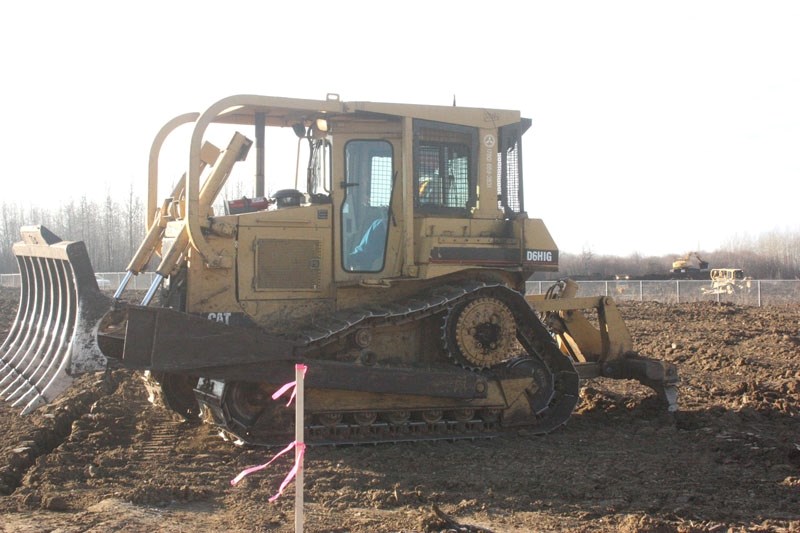The new Heavy Equipment Operation training pilot project Portage College implemented in late October isn’t just going to benefit the college and its students.
The results from the pilot project will likely have positive effects on the region’s local heavy equipment industry, which in turn will create more opportunities in surrounding areas and communities.
The Alberta Energy Corridor (AEC) is giving their full support for Portage’s newest pilot project.
“It improves marketability of the region to heavy industry, and users that would take advantage of this kind of program tend to migrate to the areas that those things exist in,” explained Jodie Pruden, executive director of the AEC.
A brand-new pilot program at Portage College allows the 12 students who registered to get basic certification for three types of heavy equipment during the 12-week Heavy Equipment Operation program, and the opportunity afterwards to specialize in each of the three pieces of equipment.
Once the program finishes up on Dec. 17, the students will continue their training with industry employers for a period of time, before the college brings the students back to test them on the three pieces of heavy machinery -- the bulldozer, excavator and motor grader -- in order for them to receive more specialized certification for each of them.
“We need the industry to recognize a standard credential, and that’s what we’re hoping to achieve from this,” explained Stuart Leitch, Dean at Portage College.
Because the students will each have standard knowledge using and operating the heavy equipment, employers won’t have to spend much time teaching them how to use them on the job site.
For the AEC, this presents an opportunity for possible future heavy industry companies to move into the region.
“For us, it’s quite feasible to expect that because this program is here and with what the AEC is currently doing, we can expect those kinds of construction industries would find this area that much more of an attraction,” added Pruden.
The AEC’s geographical area, the industries already in place, the land use strategy plan currently in the works and the possible future growth in the area makes the region very viable for businesses to move into the area.
Adding all of these positive components to a pilot program that wants to make sure future heavy industry employees all have a standard credential of knowledge and experience on the machinery, should generate even more interest for the region in the future.
“You’re bringing in students that might not have relocated here for any other reason than the program, and now that you have local employment opportunities, the likelihood of the students relocating to Boyle permanently because they can find employment is greater,” noted Pruden.
As four nodes of development have been identified in the Land Use Strategy Plan for the AEC, construction sites will likely be a common sight in the region for many years to come, which could increase job opportunities as a heavy equipment operator.
“We’re anticipating that there would be a really good trickle-down effect across the whole AEC,” said Pruden.
It isn’t certain how much the AEC will benefit from Portage’s pilot program, but the likely time period during which the region is going to see these benefits will be along the lines of five years, said Pruden.
Since the program is a pilot project, there is no guarantee the program will continue. With a desperate need for certified and qualified heavy equipment operators in the region, the future looks bright, but it will take some time.
“The pilot project was really to establish what the need was, how we’re going to address it and how the program is going to be built,” Pruden said. “The evolution of the program is going to take some time, so you’re looking at about a five-year plan.”



